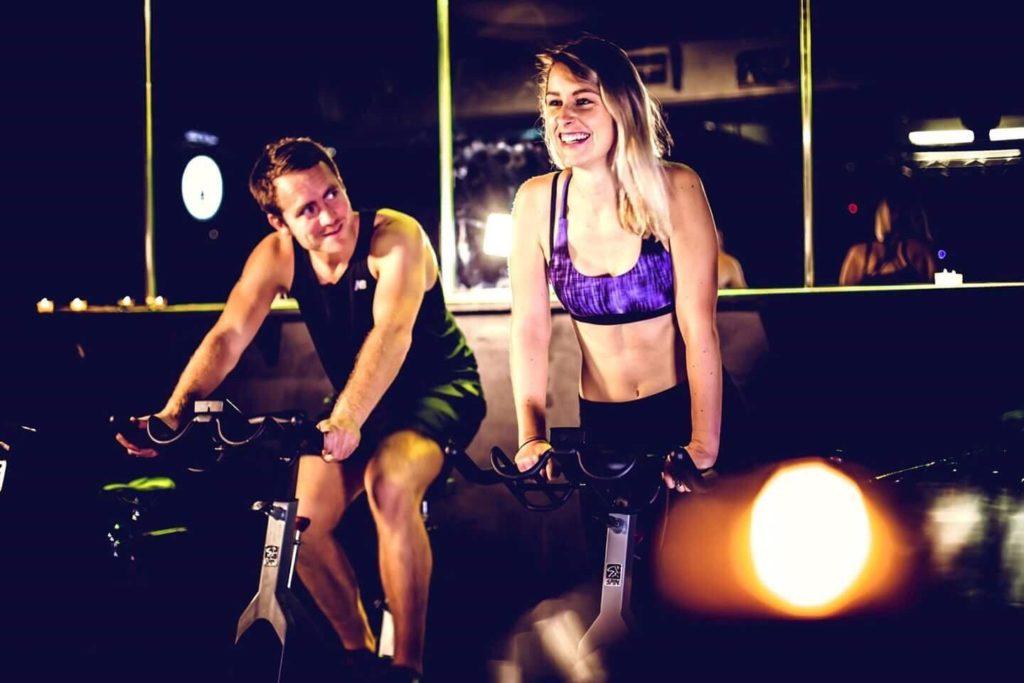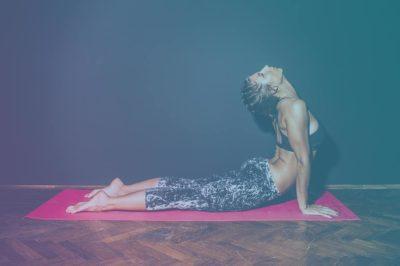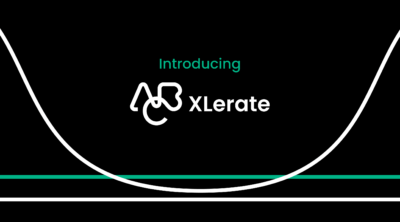Are you thinking of starting a boutique fitness studio?
The fitness industry is growing steadily and evolving. Americans are abandoning their traditional gym memberships in favor of more expensive, trendy boutique fitness studios. The 2018 Global Boutique Trends report highlights the demographics driving the boutique boom. They’re young, female, and like to work out on a Tuesday.
The fitness landscape has changed with specialized fitness studios increasing in popularity. High-end gyms and studios make up over 35% of the multibillion-dollar fitness industry. Opening your own fitness studio is considered a dream for most, but you can take the steps you need to make it a reality. In this article, we will discuss nine things you need to think about when starting a boutique fitness studio.
3 Killer Boutique Fitness Studio Brands Right Now
Boutique fitness is a competitive landscape with new studios popping up in neighborhoods frequently. Instead of paying for a gym membership, consumers are demanding expert training in a fancy studio that’s completely tailored to their workout. These days, people want a whole buffet of options to choose from at a time that is convenient for them. Check out these three brands who are nailing their offering in the world of boutique fitness.
Barry’s Bootcamp
Barry’s Bootcamp provides a full-body weight and treadmill workout in 60 locations in 10 countries across the world. Depending on where you’re based, a class can range from $30 to $36. The boutique studio is continually listening to its customers and responding to requests for new locations. Barry’s has grown from 20 studios to 60 in five years. In the last year alone, the company has grown over 40%. Over the next five years, they plan to open 100 studios globally.
Project by Equinox
Based in New York, Project by Equinox has been launched as the go-to spot for top fitness talents to create new workout styles and classes. The brand aims to breaks all the rules and smashes the norm of boutique fitness. Project is ideal for people who want Equinox-level classes but can’t afford the price tag.
Tone House
Tone House goes way beyond your casual lunchtime workout. It’s the first-ever extreme athletic-based studio group workout. The fitness studio aims to unlock your inner athlete through workouts that combine resistance and explosive exercise. Group workouts focus on team exercises and fun and are ideal for workout warriors.
How to Start Your Own Boutique Fitness Studio
So, you’ve decided you want to open your own boutique fitness studio? You’ve got the passion and drive to make it a reality. As with any business, it takes a lot of hard work and effort to start your own fitness business. Before you take the plunge, here are nine things to consider when starting a boutique fitness studio.
Skip ahead to:
Do Your Research
As a business owner, you absolutely need a business plan before you open your facility. The business plan is the backbone of any business and needs to include a ton of detail so that you make well-informed decisions down the line. Your business plan will give you a realistic view of the future and also help you secure funding. Key elements to include in your business plan are:
- Mission statement
- Executive summary
- Industry analysis
- Competitive analysis
- Marketing plan
- Financial plan and projections
Whether you’re a fitness expert or personal trainer, you’ve probably already gained a mountain of knowledge from working in the fitness industry. But, you need to take that knowledge further and understand all the ins and outs of the business to give yourself the biggest chance of success. To get your business plan started, we’ve put together a guide to help you create a thorough business plan and explain exactly why you need one.
Startup, Franchise, or Purchase?
When starting a boutique fitness studio, you have a few options that you could take. If you want to start from scratch and grow your brand from the ground up, then a startup is for you. There’s also the option to buy into a franchise. When you buy into a fitness franchise, a lot of the work has already been done for you in terms of building a brand and creating a blueprint for success. The final option is to purchase an already established business.
If you want total freedom and want to make every business decision, then a startup is for you. If you’re starting from scratch, some costs may be more expensive, and you have no brand recognition. With a franchise location, there is usually support and training already in place to help. However, you will probably have to follow specific guidelines and rules when it comes to running your business.
The bonus of purchasing an existing studio is that the brand already has some awareness and recognition. But, this can be a more expensive route to go down with certain companies. All these options have pros and cons, and the perfect option will depend on a number of different factors.
Finance Your Business
It takes a decent amount of money to open a business. There are multiple costs that you need to consider, both ongoing and one-off payments. From rent and fitness equipment to legal costs and employee wages, the expenses can add up quickly. During the planning stage of your business, think about how you will finance your facility. Are you willing to take on investors in return for a share of your company, will you take out a loan or save up the money yourself?
The 6 Crucial Steps to
Opening a Gym or
Studio
Discover more When planning your finances, look at your overall costs as well as monthly payments. Hidden fees will always pop up, so make sure to have some financial cushioning in place. Depending on the type of business you want to open, the costs can vary massively. For more information, check out our guide on counting the costs of opening a gym in today’s fitness marketplace. Here are some costs you need to think about:
- Facility costs
- Licenses and permits
- Gym equipment
- Legal feels and insurance
- Advertising and marketing
- Gym management software and hardware
Permits, Licences, and Insurance
Your business will need the right permits, licenses, and insurance in place to run properly. Licencing and permit requirements may change from one state to another, so double-check that you’re following regulations wherever you’re based. Opening a gym can be a potential minefield so it’s crucial to understand any rules and regulations. This might be health and safety or even food hygiene regulations if you’re selling food and drink at your facility.
When it comes to business insurance, make sure you have adequate cover in place to protect you from any insurance claims. No matter how well-worded your legal contracts are with members and visitors, if a client hurts themselves due to faulty gym equipment, a claim could come your way. As a business owner, it’s your responsibility to put measures and processes in place to keep your clients and employees safe. There are different types of insurance to consider including:
- General liability insurance
- Building property insurance
- Professional liability insurance
- Workers’ compensation insurance
Prepare to Work
When you start your own fitness studio, there are multiple jobs and roles that need to be filled. Depending on your budget and position, you may end up performing a lot of these jobs yourself. If you’re a personal trainer, you might also end up doing general maintenance around the facility, accounting, admin, advertising, and marketing. All these jobs take up time and will add a lot of hours to your workday.
As your business grows, you can look to hire employees that fill specific roles. Writing emails, blogging, engaging with clients on social media all requires work. When running a business, there are a crazy amount of hours that go into it after everyone else has gone home. Prepare to work early mornings, late nights, and most days. Your family or social life may take a bit of a beating, but it will pay off in the end. Prepare to spend a lot of hours working, especially in the beginning, to build your business.
Be a Specialist
Some of the most successful boutique fitness businesses specialize in a specific area. Whether it’s martial arts, yoga, indoor cycling, high-intensity interval training or pilates-inspired barre classes, there’s a niche to suit your passion. Orangetheory Fitness is the leader in heart rate interval training. The boutique brand is a massive player in the fitness franchise industry. Eight years after opening its first studio in 2010, it surpassed $1 billion in systemwide revenue in 2018.
To specialize in a particular area of fitness, you need to have highly-trained instructors. Good trainers are an integral part of your business and will keep clients coming back again and again. Find the best instructors who will connect with your clients and give them the results they want. Spend time training them and hire excellent staff. The best trainers will come at a higher cost but will be worth it in the long run.
Make it a Destination and Create a Community
Boutique fitness brands like SoulCycle and Equinox have taken fitness a step further. These fitness brands have become lifestyle brands creating communities and a sense of belonging. You no longer just hit the gym, you wear your branded clothing and post on social media about your sweaty workout at your nearest SoulCycle.
Build a place where people like to hang out. There’s a reason that boutique fitness destinations are booming. By creating a sense of community with group fitness and your company culture, you will keep members coming back for more. You can cultivate both a physical community vibe as well as an online-based community through social media.
High Price, High Value
Fitness spending is flying high with luxury services in demand. The idea behind high price, high value, is that as you are offering a premium service, you don’t need to offer free trials. Many box gyms and traditional fitness facilities provide free trials or discounted offerings to get new clients in. Instead of offering free trials, provide paid trials or high price challenges that will get results. A high price relates to high quality with serious and noticeable results.
Listen to our latest podcast with the founders of Hot House Yoga, Christopher and John Yax to find out more about how to increase the value of your offering. The yoga entrepreneurs and brothers discuss how to create a compelling frontend that sells and the importance of keeping a consistent teaching style across all their studios.
The Right Marketing and Advertising
After you’ve worked so hard to start your business, you need to get the word out there that you’re open for business. It’s time to define and build your brand. In today’s digital age, marketing comes down to building an online following and awareness. Social media marketing and advertising are essential. You now have the ability to get in front of the right people in the right location with a click of a button.
Whether it’s Facebook advertising, connecting with a well-known fitness influencer in the area or regularly sharing behind the scenes snippets through Instagram stories, there are numerous different ways to market your business. Check out our guide to marketing for the modern fitness founder to find out how to grow an online following and unique marketing strategies you can use for your business.
In Summary
With the chance to be your own boss, build a company, and create a community your clients will love, starting a boutique fitness studio may sound like a dream. But, by taking the steps necessary to start your own business, you can launch your own studio and be ready to take on the fitness industry.















